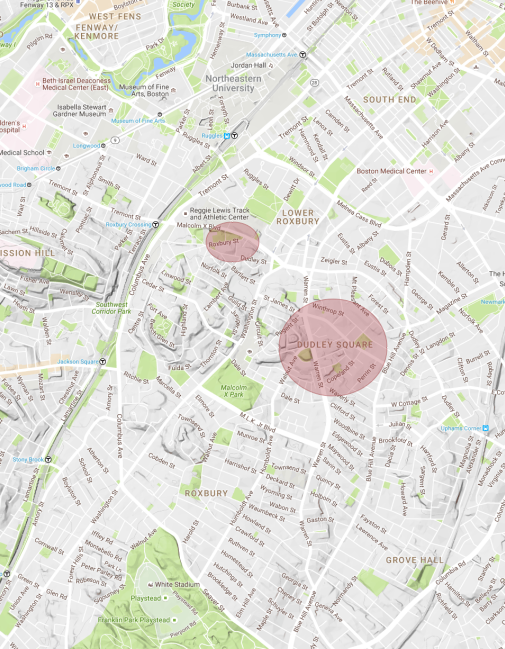By Patrick Burgard, news staff
Dozens of neighborhood residents gathered Tuesday, Oct. 25 at a Boston City Council hearing to discuss the creation of a state cultural district in Roxbury’s historic Hibernian Hall.
The initiative, sponsored by City Councilor Tito Jackson (D-7) and Councilor-at-Large Ayanna Pressley, would formally designate the area as a Massachusetts cultural district.
The community would then be entitled to state funding to help stimulate the economy and improve standards of living across Roxbury.
“A designated cultural district in Roxbury will showcase the rich and vibrant assets which exist there, enrich the neighborhood for residents and tourists alike,” Pressley said at the meeting.
The people of Roxbury are working to determine the boundaries of the proposed district by crowd sourcing on an interactive map on the Roxbury Cultural District website.
If approved, the Roxbury Cultural District would join 32 other designated districts across the state, including the Boston Literary Cultural District near Boston Common and the Fenway Cultural District near Northeastern.
The project’s principal consultant, Kelley Chunn, a Roxbury resident who specializes in cause-related consulting, said that more than 40 Roxbury-based institutions have volunteered as community partners in the project.
These include JazzBoston, the Bay State Banner and Darryl’s Corner Bar.
Roxbury has a long history as a creative hotbed, and has been influential in American music, visual art, architecture and literature.
In addition to countless jazz musicians who have called Roxbury home over the years, big names in American entertainment have come out of the neighborhood, including disco superstar Donna Summer, 1980s boy band New Edition and the late comedian Patrice O’Neal, who was known for his roles in “The Office” and “Arrested Development.”
Aside from acknowledging Roxbury’s rich creative history, the initiative is forward-looking and aims to address the neighborhood’s economic woes, which have persisted in spite of much of the city’s relative prosperity.
“The district would also create much needed jobs for Roxbury artists and build wealth for the neighborhood,” Pressley said. “Establishing a cultural district in Roxbury is a double bottom line, both in terms of social and economic impact.”
In January, the Brookings Institution, a nonprofit public policy think-tank organization based in Washington D.C., released a report identifying Boston as having the worst income inequality of any major American city.
City councilors also want to ensure that the money that comes to Roxbury helps the existing community and spurs growth beyond the district’s official borders, encompassing an area Jackson described as “historic Roxbury,” which includes Northeastern and other neighborhoods.
“It’s about the people in these neighborhoods and communities who’ve shown resilience – they’ve shown the ability to innovate in some of the most difficult times that we’ve had in this city,” Jackson said at the meeting. “My plan is not for those people who will come, my plan is for those people who are already here.”
Chunn said she and her fellow district consultants view the district’s boundaries as more of a formality, and that she hopes Roxbury’s would-be district will work similarly to the Boston Literary Cultural District, which has sponsored literary events as far away as Cambridge.
The meeting was one of the last stages in the application process to formally establish such a district, which would be centered on Dudley Square and John Eliot Square.
“Once they were given their designation, they started promoting literary events in Cambridge and other parts of the Boston area,” Chunn said at the hearing. “I see the Roxbury Cultural District as promoting arts and culture throughout the community of Roxbury.”
Graphic by Alejandro Serrano using map data ©2016 Google









